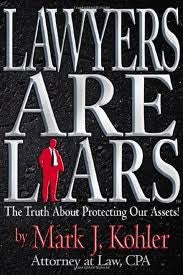S-Corps and Tax Advantages: What to KnowAn S-Corp election can save small businesses on certain health care and employment taxes, amounting to thousands for eligible ventures. We explain the advantages.
Opinions expressed by Entrepreneur contributors are their own.
Recently, a new client contacted me who had been operating her real estate brokerage as a sole-proprietorship. In her second year, she wasn't quite yet making six figures, but it was certainly clear she was headed in that direction. She thought it was time to consider the S-Corp and we certainly helped her make the change. However, her delay had already cost her thousands of dollars in taxes, and thank heavens there hadn't been a law suit that could have threatened her personal assets.
In my opinion, most small business owners at some point should consider operating their venture as S-Corporations. The asset protection could be critical and the tax savings significant depending on the situation. If you're wondering if the election is the best step for your business, you'd be in good company. According to Brian Reardon, executive director of the S-Corporation Association, a Washington D.C. advocacy group, there are 4.5 million small business owners in the U.S. today and twice as many S-Corps than C-Corps. For those considering their options, here are some points to keep in mind.
Asset protection.The first benefit of choosing the S-Corporation is the obvious protection provided when incorporating. If you are still operating as a Sole-Proprietorship, you may want to incorporate for the purpose of asset protection irrespective of any tax savings.
Keep in mind that the "S-Election" with the IRS to operate as an S-Corporation is completely irrelevant when it comes to asset protection. The "corporate veil' is provided through the State law of incorporating. Never believe that an LLC or C-Corp gives youmore or betterasset protecting from the operations of your business than that of an S-Corp; a principle I discuss in depth in my bookLawyers are Liarsand quote case law and the experts around the country supporting this concept
Flow-thru taxation.S-Corporations aren't subject to corporate tax. Designed for small business, this election restricts companies to no more than 100 Shareholders. As a result, shareholders receive the benefit of avoiding double-tax on their net income. Net-income after all business expenses flows thru to the business owner's personal 1040 tax return on a Form K-1.

protection are covered in Mark
Kohler's new book,
Lawyers Are Liars.
In contrast, C-Corporations are built for large corporations that need to raise capital and have thousands if not millions of shareholders
S-Corps have a far reaching effect on our economy. According to2012 study by Ernst & Young, commissioned by the S-Corporation Association, 54 percent of the private workforce in America works at a "pass-thru' company such as S-Corporations, partnerships or LLCs. Moreover, pass-thru companies contribute more tothe bottom line of the economythan C-Corporations and the trend towards entrepreneurs choosing this type of business entity is growing.
Saving on Self-Employment Taxes.Significantly, S-Corporations can save on the dreaded self-employment tax. Whether operating as a Sole-Proprietor or that of an LLC, if you are creating ordinary income from operations (i.e. sales of service or products), all of your net-income will be subject to FICA. The tax is 15.3 percent on the first $117,000 of net-income in 2014 of income and, then 2.9 percent on everything above that (the Medicare portion).
However, the S-Corporation allows its owners to take a reasonable salary through a W-2 and take a good portion of their profit as net-income under the K-1 (as discussed above). The beauty of this strategy is that the business owner only pays SE Tax or FICA on the salary portion, and not on the flow-thru income.
Many small business owners already take advantage of the savings an S-Corporation offers in regard to FICA or Self-Employment tax, but some tax planners continue to advise business owners to stay away. Please don't listen to this advice without getting a second opinion.
底线,s公司策略使用时properly and not abused. The majority of our legislators know this. The S-Corporation FICA strategy has been around for years, and I feel strongly that it will continue to be so for many more years to come.
Avoiding the "ObamaCare tax."Many taxpayers have forgotten or don't realize that there is an additional .09 percent tax based on the Affordable Health Care Act that kicks in on any net income above $200,000 for single taxpayers or combined income of married couples of $250,000. This applies to any ordinary net-income you generate in your Sole-Proprietorship or Limited Liability Company.
The S-Corporation provides another unique benefit for tax planning in that this additional tax does not apply to the net "flow-thru' income of an S-Corporation (only to the W-2 portion over the limits). Thus, if you plan your payroll level properly you can structure your business to even save further on your K-1 net-income.
How to make the Change.If you are currently operating as a Limited Liability Company (LLC) or C-Corporation, you can make a special election onIRS Form 2553to be taxed as an S-Corporation moving forward. Historically, the deadline has been March 15thfor a business to make an election for the current year.
However, last year the IRS provided additional regulations underRevenue Procedure 2013-30allows a small business owner to "convert' their current business to an S-Corporation retroactively to the beginning of the year even if you miss the March 15thdeadline. I recommend that you don't rely on this new Rev. Proc. unless absolutely necessary, and make the election as soon as you crunch the numbers and know the decision is right for you.
If you are newly incorporating your business the S-Election needs to be filed within 75 days of the effective date of your new entity.
The S-Corporation is alive and well and could be the perfect fit in your business. It isn't for every small business owner in every situation, but run the numbers, review the facts and get a second opinion if anyone says otherwise.












